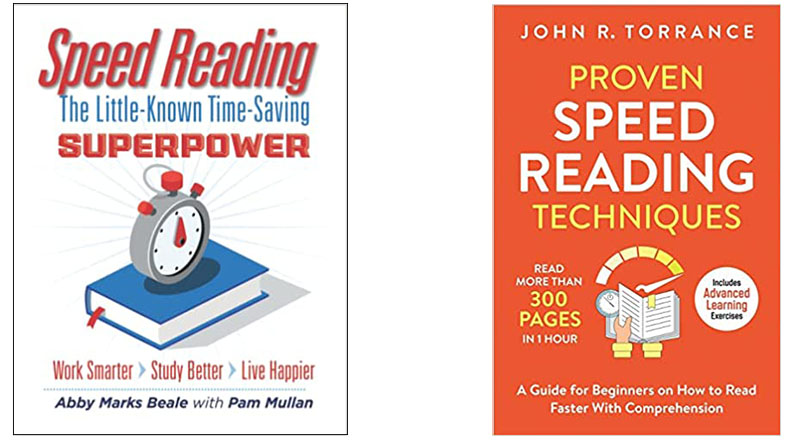The secret to Warren Buffet’s massive wealth? Reading every day.
According to the billionaire investor, “That’s how knowledge works. It builds up, like compound interest. All of you can do it, but I guarantee not many of you will.”
Now, Buffet recommends reading 500 pages a day. That’s a lot. It’s an amount that’s out of reach for most of us mere mortals with MSPs to run and families to spend time with, and you know, sleep to catch.
But even if you can’t crank through two average-length business books in a day, there’s still power in reading as much as you can.
Journalist Sandy Clarke notes that “the sole constant that runs through most of the stories of successful people is that they read as many books as possible. They read books that help them to develop and grow their existing skills, as well as master real life skills such as willpower, communication and negotiation skills, and self-discipline.”
With that in mind, here are four ways to build your ability to consume information that will help your business.
1. Train yourself to speed read.
You can read faster than you do now. You likely hit a plateau with your reading speed in your teens but that doesn’t mean you can’t go further with a bit of training and practice.
Try this reading speed test to see where you currently stand.
The average non-fiction reader consumes about 235 words per minute but it’s possible to double or even triple that speed without sacrificing comprehension.
Good places to start learning speed reading include books like Abby Marks Beale’s Speed Reading: A Little Known Time-Saving Superpower or John Torrance’s Proven Speed Reading Techniques.

Apps are also incredibly helpful tools for training your eyes and brain to absorb information faster. Lifewire has a helpful top 10 list of speed reading apps for iPhone, Android, your watch, or desktop. Spreeder tops the list for helping you make quick improvements.
2. Listen to audiobooks at 1.5x speed
Most people have a tremendous capacity to take in information through their ears—probably greater than they realize. That’s because people can think much, much faster than someone can talk.
Speed listening, like speed reading, is something that can be readily improved with a bit of practice. Most audiobooks, podcasts, and video players offer speed adjustment so it’s easy to experiment.
If you’ve never tried speeding up your books, start at 1.5x speed. If that seems too fast, take it down to 1.25x until that feels comfortable. Then try pushing back to 1.5x. If you feel you miss something, you can always scrub back a bit in the recording and play it again.
Speed tip! Jim Kwik, author of Limitless, says he likes to listen to audiobooks on the treadmill. “It’s been proven that when you are releasing certain hormones when you’re working out, you are actually able to learn faster,” he says.
Myself, I prefer 1.5x as a minimum. With slow talkers, 1.75x or even 2x speed is much preferred. Friendly warning: Once you’ve got speed listening down as a habit, you’ll find it hard to sit through a “regular” pace. ?
3. Use a book summary app.
Remember Cliff Notes (or Coles Notes if you’re Canadian)? They were a fast way to digest the main ideas of a book that you just couldn’t or wouldn’t get through on your own.
In school, book abstracts were almost considered cheating—but now, who cares if you read all 238 pages or not.
That’s where an app like Blinkist comes in handy. The app has a library of over 5,500 non-fiction books that have been broken down into “blinks” that summarize the book overall and the key takeaways from each chapter. You can read or listen to blinks.

If you discover a book in Blinkist that seems like it would have a lot of value for you, you can always pick up the full-length read for more detail. Using Blinkist as a “pre-read” can be a great timesaver, helping you focus only on those books you know you want to deep dive on.
Great books for MSPs that you’ll find in Blinkist:
- Traction by Gino Wickman
- Profit First by Mike Michalowicz
- Ready, Fire, Aim by Michael Masterson
4. Focus
No matter which method you choose for consuming ideas quickly, the biggest hack of all is simply focus.
Let’s face it: Our brains are not good at multitasking. When we pay attention to multiple things at once, we get fatigued and overwhelmed. We don’t absorb or retain information well.
There’s a physical reason for this. “Neurons are living cells that require oxygenated glucose to function,” says cognitive neuroscientist Daniel J. Levitin. “We burn up that glucose when we ask the attention systems of the brain to rapidly shift from one thing to the next.”
So the biggest favor you can do yourself when reading or listening to something is to give it your full attention.
- Save things to read later and set aside a dedicated reading time each day.
- Give yourself a time limit and take breaks between sessions to stay fresh.
- Turn off pings and notifications.
- Take a deep breath before you begin.
These four productivity tips are well within reach for even the busiest MSPs. With the exception of training to speed read, they can all be implemented quickly and easily. Pick one to start and give it a try, then let us know in the comments how you make out. Got a speed reading tip I missed? I’d love to hear it.
Share














